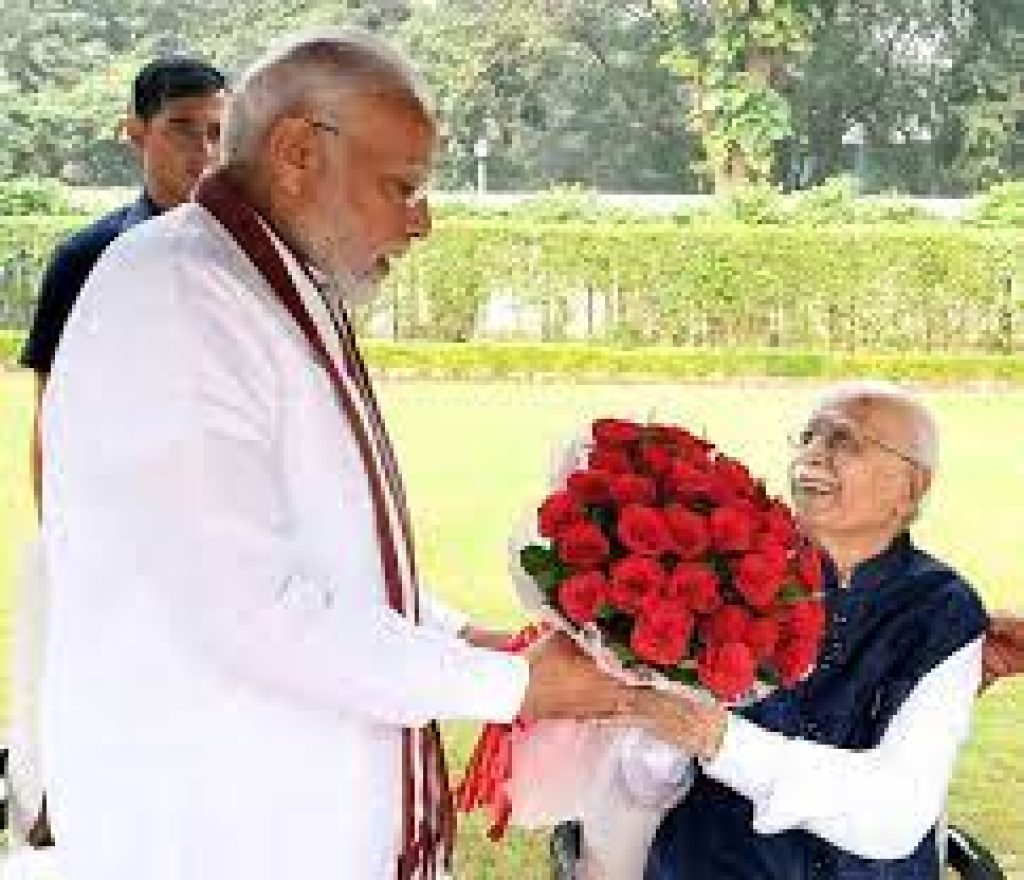LK Advani to be awarded, Bharat RatnaThe Indian government has announced that LK Advani, one of the most prominent figures in Indian politics, will be conferred with the Bharat Ratna, the nation’s highest civilian award. This prestigious honour is a testament to Advani’s indelible contribution to Indian politics and society over several decades.
The Bharat Ratna is a fitting recognition of LK Advani’s legacy as a statesman who has dedicated his life to the nation. His leadership has not only shaped the BJP but also left a lasting impact on Indian politics and governance. The award celebrates his immense contributions and his role as a catalyst for political and social change in India.
Born on November 8, 1927, in Karachi, LK Advani’s political journey is a saga of resilience, leadership, and profound influence on the Indian political landscape. Advani, a key architect of the Bharatiya Janata Party (BJP), has been instrumental in shaping the party’s ideology and steering it to national prominence.
LK Advani, Architect of Political Change
Advani’s political career is marked by his visionary leadership and strategic acumen. His Rath Yatra in 1990 was a turning point in Indian politics, significantly impacting the national discourse and contributing to the BJP’s rise as a major political force. As a seasoned parliamentarian and a government official, Advani has held several key positions, including that of the Deputy Prime Minister of India.
LK Advani, Contributions and Controversies
Advani’s tenure in politics has not been without controversies. However, his contributions to national security, governance, and public welfare have been significant. His role in promoting infrastructure development and his tough stance on national security are particularly noteworthy. Advani’s political journey is a reflection of his commitment to his principles and his unwavering dedication to India’s development.
About the Bharat Ratna
The Bharat Ratna is India’s highest civilian award, established on 2 January 1954. It is awarded to recognize the highest degrees of national service, including artistic, literary, and scientific achievements, as well as recognition of public service of the highest order. The honour is not limited to Indian citizens; it has been awarded to non-Indians as well.
Criteria and Selection of Bharat Ratna
Originally, the award was limited to achievements in the arts, literature, science, and public services, but in December 2011, the government expanded the criteria to include “any field of human endeavor.” The Prime Minister recommends the recipients to the President of India, with a maximum of three nominees awarded per year.
Design of Bharat Ratna
The medal of the Bharat Ratna features a peepal leaf design, approximately 2.5 inches in length, 1.9 inches in width, and 1/8 inch in thickness. On the obverse, the sun is embossed along with the words “Bharat Ratna” in Devanagari script, below which is a floral wreath. The reverse side bears the State Emblem and motto. Originally made of gold, the medal is now made of a platinum alloy.
Notable Recipients of Bharat Ratna
Recipients include a diverse group of individuals, from freedom fighters like C. Rajagopalachari, Sarvepalli Radhakrishnan, and C.V. Raman, who were the first recipients, to international figures such as Nelson Mandela and Mother Teresa. The award has also been posthumously conferred upon individuals such as Lal Bahadur Shastri and more recently, Bhupen Hazarika, Pranab Mukherjee, and Nanaji Deshmukh.
Significance of Bharat Ratna
The Bharat Ratna is not just an award but a symbol of the highest esteem in which the nation holds the recipient. It is a recognition of the extraordinary contributions made towards the advancement of India and the embodiment of the ideals and values that the country strives for.
